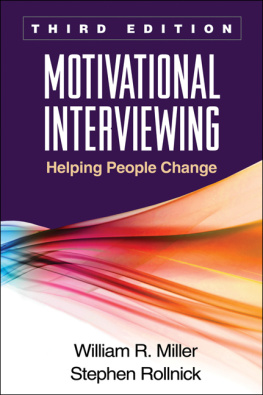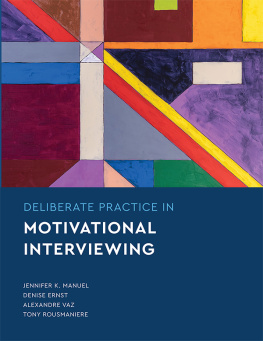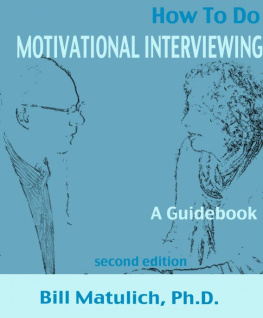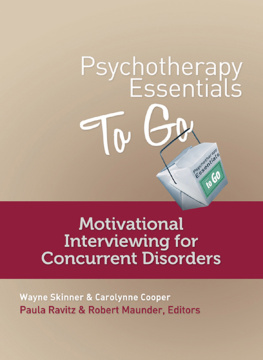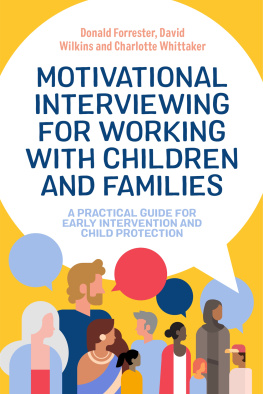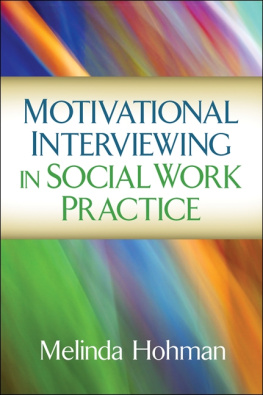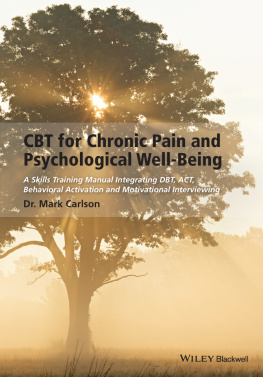www.guilford.com
Founded in 1973, Guilford Publications, Inc., has built an international reputation as a publisher of books, periodicals, software, and DVDs in mental health, education, geography, and the social and behavioral sciences. We pride ourselves on teaming up with authors who are recognized experts, and who translate their knowledge into vital, needed resources for practitioners, academics, and general readers. Our dedicated editorial professionals work closely on each title to produce highquality content that readers can rely on. The firm is owned by its founding partners, President Bob Matloff and Editor-in-Chief Seymour Weingarten, and many staff members have been at Guilford for more than 20 years.

| Sign up to receive e-Alerts with new book news and special offers in your fields of interest:
http://www.guilford.com/ealerts. Introducing Todays Guilford Periodicals Online Taking periodicals to the next level, our improved website enhances your experience with additional content, more flexibility, and new ways to access up-to-the-minute information and perspectives. Visit http://guilfordjournals.com to browse all Guilford periodicals, subscribe to e-Alerts or RSS feeds, and order individual articlesand more. |
William R. Miller, PhD, is Emeritus Distinguished Professor of Psychology and Psychiatry at the University of New Mexico. He introduced motivational interviewing in a 1983 article in the journal Behavioral Psychotherapy and in the first edition of Motivational Interviewing, written with Stephen Rollnick, in 1991. Dr. Millers research has focused particularly on the treatment and prevention of addictions, with broader implications for the psychology of change. He is a recipient of the international Jellinek Memorial Award, two career achievement awards from the American Psychological Association, and an Innovators in Combating Substance Abuse Award from the Robert Wood Johnson Foundation, among many other honors. The Institute for Scientific Information lists Dr. Miller as one of the worlds most cited scientists.
Stephen Rollnick, PhD, is Professor of Health Care Communication in the School of Medicine, at Cardiff University, Cardiff, Wales, United Kingdom. He worked as a clinical psychologist in mental health and in primary health care for many years, and then turned to how motivational interviewing could be used to improve challenging consultations in health and social care. Dr. Rollnicks research and guidelines for good practice have been widely published, and his work on implementation continues, with a focus on children with HIV/AIDS in Africa and on pregnant teens in deprived communities. Drs. Rollnick and Miller are corecipients of the Engel Award from the American Academy on Communication in Healthcare.
Glossary of Motivational
Interviewing Terms
A form of client preparatory change talk that reflects perceived personal capability of making a change; typical words include can, could, and able.
One of four aspects of acceptance as a component of MI spirit, prizing the inherent value and potential of every human being.
One of four central components of the underlying spirit of MI by which the interviewer communicates absolute worth, accurate empathy, affirmation, and autonomy support.
The skill of perceiving and reflecting back another persons meaning; one of four aspects of acceptance as a component of MI spirit.
A form of client mobilizing change talk that expresses disposition toward action, but falls short of commitment language; typical words include ready, willing, considering.
One of four aspects of acceptance as a component of MI spirit, by which the counselor accentuates the positive, seeking and acknowledging a persons strengths and efforts.
An interviewer statement valuing a positive client attribute or behavior.
A short focusing metaconversation in which you step back with the client to choose a direction from among several options.
A reflection, affirmation, or accord followed by a reframe.
The simultaneous presence of competing motivations for and against change.
A response in which the interviewer reflects back the clients content with greater intensity than the client had expressed; one form of response to client sustain talk or discord.
A way of responding to discord by taking partial responsibility.
Providing a client with personal feedback of findings from an evaluation, often in relation to normative ranges; see Motivational Enhancement Therapy.
The clinical error of beginning consultation with expert information gathering at the cost of not listening to the clients concerns. See also QuestionAnswer Trap.
One of four aspects of acceptance as a component of MI spirit, by which the interviewer accepts and confirms the clients irrevocable right to self-determination and choice.
The clinical error of focusing on blame or fault-finding rather than change.
A particular kind of summary that collects and emphasizes the clients change talk.
Generating options without initially critiquing them.
An acronym for three subtypes of client mobilizing change talk: Commitment, Activation, and Taking Steps.
A specific target for change in motivational interviewing; typically a particular behavior change, although it may also be a broader goal (e.g., glycemic control) toward which there are multiple avenues of approach.
A specific scheme to implement a change goal.
Change RulerA rating scale, usually 010, used to assess a clients motivation for a particular change; see Confidence Ruler and Importance Ruler.
Any client speech that favors movement toward a particular change goal.
The clinical error of engaging in excessive small talk and informal chat that does not further the processes of engaging, focusing, evoking, and planning.
See Person-centered Counseling.
A question that asks for yes/no, a short answer, or specific information.
The process of helping someone to acquire skill.
See Partnership.
A special form of reflection that pulls together a series of interrelated items that the person has offered. See also Summary.
A response to persistent sustain talk or discord in which the interviewer accepts and reflects the clients theme.
A form of client mobilizing change talk that reflects intention or disposition to carry out change; common verbs include will, do, going to.
One of four central components of the underlying spirit of MI by which the interviewer acts benevolently to promote the clients welfare, giving priority to the clients needs.
An interviewer reflection that adds additional or different meaning beyond what the client has just said; a guess as to what the client may have meant.
A scale (typically 010) on which clients are asked to rate their level of confidence in their ability to make a particular change.
Change talk that particularly bespeaks ability to change.
(1) as a goal: to come face to face with ones current situation and experience; (2) as a practice: an MI-inconsistent interviewer response such as warning, disagreeing, or arguing.

